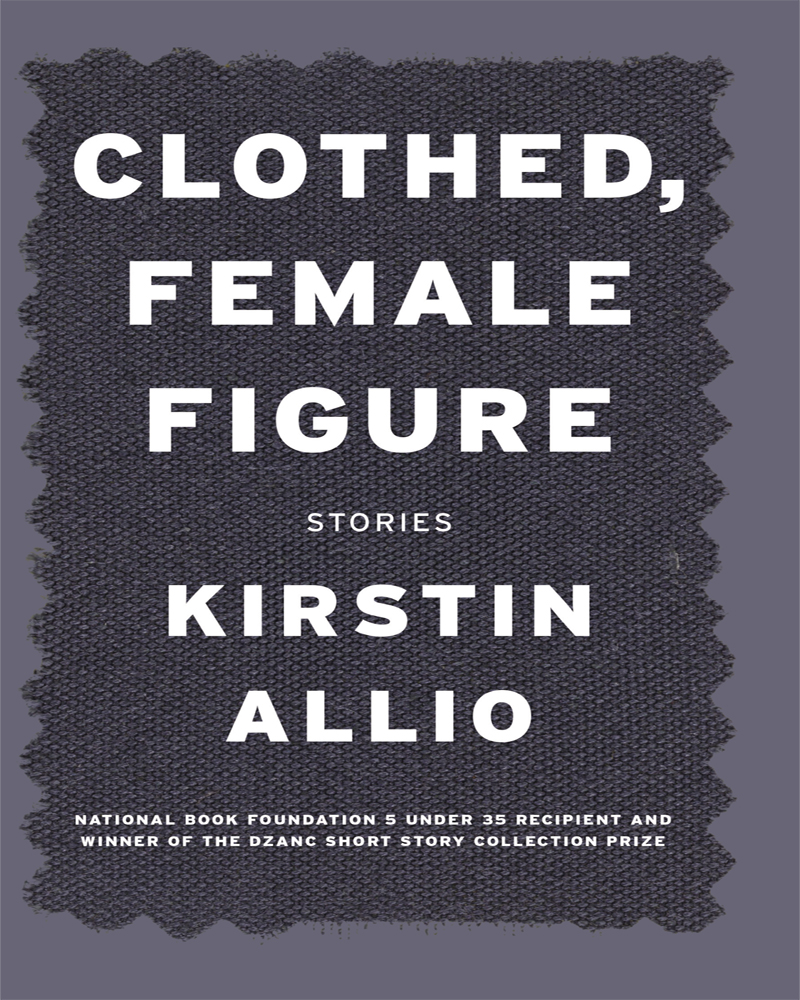
Clothed, Female Figure
Stories
کتاب های مرتبط
- اطلاعات
- نقد و بررسی
- دیدگاه کاربران
نقد و بررسی

July 25, 2016
The debut short story collection by National Book Foundation 5 Under 35 honoree Allio (Garner) presents eloquent and sophisticated investigations into the complex relationships between mothers and daughters. Allio's characters often suffer great losses, as in "Millennium," in which a young woman makes an abrupt move to New York City after the death of her mother, and "Still Life," a portrait of a wife and mother who is left reeling after the mysterious suicide of a close friend. Another story, the lovely "Quetzal," examines the inner life of an alcoholic academic whose mother abandoned her at age 11. Many of the stories hinge on the revelation of a secret, such as when the narrator of "The Other Woman" learns about a long-ago deception on behalf of her mother, or when the Russian émigré narrator of the beautiful and exceptionally moving title story, having worked a lifetime as a nanny, finally faces painful truths about her familial past after receiving a series of letters from a former charge. The women populating this collection are often confined to small, domestic spaces, which Allio describes with great intimacy and perfectly chosen details. These stories are sometimes deceptively slow to reveal their true subjects, as in "Charm Circle," when the perspective shifts from mother to daughter halfway through the story to surprising effect. Taken as a whole, the collection paints a panoramic portrait of the bonds between mothers and daughters, the complicated fierceness of their love, and the anguish and confusion that accompanies loss.

Starred review from June 15, 2016
First collection by a National Book Foundation 5 Under 35 honoree and author of Garner (2005), a finalist for the Los Angeles Times' Art Seidenbaum Award for First Fiction.Not much happens in these stories--not on the surface, anyway. There's little in the way of dialogue. Allio tells more than she shows. They succeed, though, because Allio's protagonists are obsessively observant. A Russian emigre working as a nanny re-examines her own life in the light of minutely confessional letters she receives from a former charge. The attempt to understand her best friend's death subsumes one woman's whole existence. A new mother, excruciatingly aware of the intricacies of class and the conflicting demands of gender, "knows she's privileged to be a housewife looking down (from above) on a housewife." For Allio's protagonists, hypervigilance is a necessary condition of survival--because of near-crippling social anxiety, because they've been critically wounded by loss, or because they're enduring an awful combination of the two. "The Other Woman" is exemplary. The daughter of a female university janitor who moonlights as a sociologist, Swan can't escape the jaded worldview bequeathed to her by an amateur social scientist and lifelong hard-ass. For example, this, at a party honoring Swan's mother-in-law, "the famous feminist": "I heard her bray above the usual modulations and I thought, Alex has spent her career practicing laughing louder than any man in academia." Cancer does little to soften Swan's mother, but it eats at Swan, and some of the story's most finely wrought passages are Swan's attempts to describe her fear and, ultimately, her grief. Swan's voice is so real, her observations about class and race and living and dying so very spot-on, that it will likely take the reader some time to notice that "The Other Woman" follows, in its perfect inevitability, the shape of a fairy tale.Marvels of craft and insight.
COPYRIGHT(2016) Kirkus Reviews, ALL RIGHTS RESERVED.

August 1, 2016
The stories in this collection take readers to New York or Providence, RI, neighborhoods, or to a university, probably Brown, all locations the author knows well. But the territory plumbed in depth is the interior world of women's relationships, especially when tested by loss, loneliness, or as in one story, a mother/infant bond so intense the mother can't bring herself to send out birth announcements. In another, a suburban mom mourns the sudden death of a best friend. Plot complications can be quirky. In the title story, a Russian nanny receives letters from a former charge, a young woman who is now an au pair in a compromising situation. In "The Other Woman," a daughter remembers her mother, a janitor at a college who passed herself off as a postdoc and graded papers for a female professor; after her mother's death from breast cancer, the daughter meets the hoodwinked academic. VERDICT An impressive first collection from a promising new voice in women's literary fiction. Allio's (Garner) prose is lush with imagery, and the story lines are revealed obliquely, making even domestic dramas profound and mysterious.--Reba Leiding, emeritus, James Madison Univ. Lib., Harrisonburg, VA
Copyright 2016 Library Journal, LLC Used with permission.

























دیدگاه کاربران